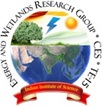 |
Optimal Treatment of Domestic Wastewater through
Constructed Wetlands
|
 |
|
Recommendation
Conservation and sustainable management of ecologically fragile wetlands requires good governance. This entails constitution of single administrative agency with the statutory and financial autonomy to be the custodian of natural resources [ownership, regular maintenance and action against polluters (encroachers as well as those contaminate through untreated sewage and effluents, dumping of solid wastes)]. Effective judicial system for speedy disposal of conflicts related to encroachment. Other suggestions are
1. Stop pollution – only treated sewage shall enter the lake. Sewage treatment through integrated constructed wetlands (similar to Jakkur Model – Secondary Treatment Plant (STP) + Constructed Wetlands + Algae ponds, will remove nutrients, etc.)
2. Implementation of ‘polluter pays’ principle as per the water act 1974. Zero discharge from industries.
3. No diversion of sewage from upstream to downstream regions and de-centralized treatment and reuse of treated sewage.
4. Remove all blockades at outlets as well as inlets– so that water will not stagnate, which will enhance aeration in the water body.
5. Remove all encroachments without any considerations or political interventions (lake bed, storm water drains, buffer zone).
6. De-siltation of lakes at regular interval to enhance storage capacity and also to remove contaminated sediments; Adopt latest state of the art technology - wet dredging to remove deposited sediments.
7. Stop dumping of solid waste and construction & Demolition wastes in the lake bed, storm water drain.
8. Remove macrophytes (covered on the water surface) regularly.
9. Regular surveillance through vigilant resident groups and network of education institutions.
10. Regular monitoring of treatment plant and lake water quality (physical, chemical and biological) and the availability of information to the public through internet.
11. Install fountains (with music and LED) to enhance surface aeration and recreation value of the ecosystem.
12. No introduction of exotic species of fauna (fish, etc.).
13. Public Participation: Decentralised management of lakes through local lake committees involving all stakeholders - Involve local stakeholders in the regular maintenance and management.
14. Ban on use of phosphates in the manufacture of detergents; will minimise frothing and eutrophication of water bodies.
15. Digitization of land records (especially common lands – lakes, open spaces, parks, etc.) and availability of this geo-referenced data with query based information system to public.
16. Planting native species of macrophytes in the buffer zone (riparian vegetation) as well as in select open spaces of lake catchment area.
17. Restrictions on the diversion of lake for any other purposes.
18. NO construction activities in the valley zones and in the buffer zones (75 m) of lakes.
|
|
Citation : Ramachandra T V, Sincy V, Asulabha K S, Mahapatra D M, Sudarshan P B and Bharath H Aithal, 2018. Optimal Treatment of Domestic Wastewater through Constructed Wetlands, Journal of Biodiveristy, 9(1&2): 81-102
| * Corresponding Author : |
|
Dr. T.V. Ramachandra
Energy & Wetlands Research Group, Centre for Ecological Sciences, Indian Institute of Science, Bangalore – 560 012, India.
Tel : +91-80-2293 3099/2293 3503 [extn - 107],
Fax : 91-80-23601428 / 23600085 / 23600683 [CES-TVR]
E-mail : tvr@iisc.ac.in, energy.ces@iisc.ac.in,
Web : http://wgbis.ces.iisc.ac.in/energy/
|
|
Dr. T.V. Ramachandra
Centre for Sustainable Technologies,
Centre for
infrastructure, Sustainable Transportation and Urban Planning (C
iSTUP),
Energy & Wetlands Research Group, Centre for Ecological Sciences, Indian Institute of Science, Bangalore – 560 012, INDIA.
E-mail : cestvr@ces.iisc.ac.in
Tel: 91-080-22933099/22933503 (extn 107)
Fax: 91-080-23601428/23600085
Web: http://ces.iisc.ac.in/energy
Sincy V
Energy & Wetlands Research Group, Centre for Ecological Sciences, Indian Institute of Science, Bangalore – 560 012, INDIA.
K.S.Asulabha
Energy & Wetlands Research Group, Centre for Ecological Sciences, Indian Institute of Science, Bangalore – 560 012, INDIA.
Durga Madhab Mahapatra
Energy & Wetlands Research Group, Centre for Ecological Sciences, Indian Institute of Science, Bangalore – 560 012, INDIA.
Sudarshan P.Bhat
Energy & Wetlands Research Group, Centre for Ecological Sciences, Indian Institute of Science, Bangalore – 560 012, INDIA.
Bharath H.Aithal
Energy & Wetlands Research Group, Centre for Ecological Sciences, Indian Institute of Science, Bangalore – 560 012, INDIA.

